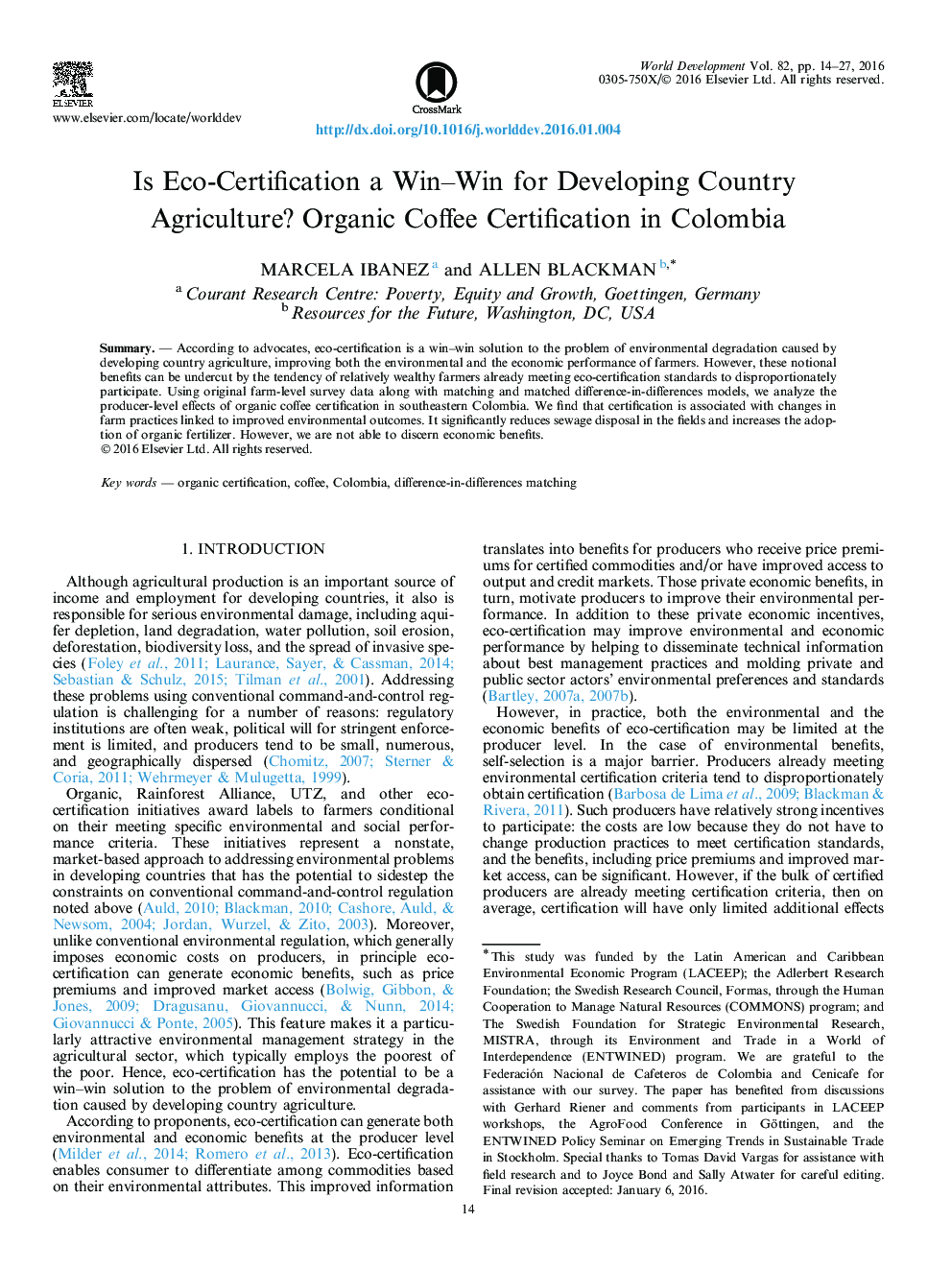| Article ID | Journal | Published Year | Pages | File Type |
|---|---|---|---|---|
| 991243 | World Development | 2016 | 14 Pages |
•We analyze the producer-level effects of organic coffee certification in southeastern Colombia.•Certification spurs use of farm practices linked to improved environmental outcomes.•However, we are not able to discern economic benefits.
SummaryAccording to advocates, eco-certification is a win–win solution to the problem of environmental degradation caused by developing country agriculture, improving both the environmental and the economic performance of farmers. However, these notional benefits can be undercut by the tendency of relatively wealthy farmers already meeting eco-certification standards to disproportionately participate. Using original farm-level survey data along with matching and matched difference-in-differences models, we analyze the producer-level effects of organic coffee certification in southeastern Colombia. We find that certification is associated with changes in farm practices linked to improved environmental outcomes. It significantly reduces sewage disposal in the fields and increases the adoption of organic fertilizer. However, we are not able to discern economic benefits.
